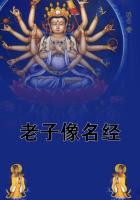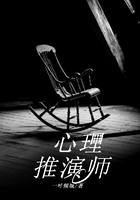It was quite conceivable that poor Cecilia should relish a pastime;but if one had philanthropically embraced the idea that something considerable might be made of Roderick, it was impossible not to see that her friendship was not what might be called tonic.
So Rowland reflected, in the glow of his new-born sympathy.
There was a later time when he would have been grateful if Hudson's susceptibility to the relaxing influence of lovely women might have been limited to such inexpensive tribute as he rendered the excellent Cecilia.
"I only desire to remind you," she pursued, "that you are likely to have your hands full.""I 've thought of that, and I rather like the idea; liking, as I do, the man.
I told you the other day, you know, that I longed to have something on my hands.When it first occurred to me that I might start our young friend on the path of glory, I felt as if I had an unimpeachable inspiration.
Then I remembered there were dangers and difficulties, and asked myself whether I had a right to step in between him and his obscurity.
My sense of his really having the divine flame answered the question.
He is made to do the things that humanity is the happier for!
I can't do such things myself, but when I see a young man of genius standing helpless and hopeless for want of capital, I feel--and it 's no affectation of humility, I assure you--as if it would give at least a reflected usefulness to my own life to offer him his opportunity.""In the name of humanity, I suppose, I ought to thank you.
But I want, first of all, to be happy myself.You guarantee us at any rate, I hope, the masterpieces.""A masterpiece a year," said Rowland smiling, "for the next quarter of a century.""It seems to me that we have a right to ask more: to demand that you guarantee us not only the development of the artist, but the security of the man."Rowland became grave again."His security?""His moral, his sentimental security.Here, you see, it 's perfect.We are all under a tacit compact to preserve it.
Perhaps you believe in the necessary turbulence of genius, and you intend to enjoin upon your protege the importance of cultivating his passions.""On the contrary, I believe that a man of genius owes as much deference to his passions as any other man, but not a particle more, and I confess Ihave a strong conviction that the artist is better for leading a quiet life.
That is what I shall preach to my protege, as you call him, by example as well as by precept.You evidently believe," he added in a moment, "that he will lead me a dance.""Nay, I prophesy nothing.I only think that circumstances, with our young man, have a great influence; as is proved by the fact that although he has been fuming and fretting here for the last five years, he has nevertheless managed to make the best of it, and found it easy, on the whole, to vegetate.
Transplanted to Rome, I fancy he 'll put forth a denser leafage.
I should like vastly to see the change.You must write me about it, from stage to stage.I hope with all my heart that the fruit will be proportionate to the foliage.
Don't think me a bird of ill omen; only remember that you will be held to a strict account.""A man should make the most of himself, and be helped if he needs help,"Rowland answered, after a long pause."Of course when a body begins to expand, there comes in the possibility of bursting;but I nevertheless approve of a certain tension of one's being.
It 's what a man is meant for.And then I believe in the essential salubrity of genius--true genius.""Very good," said Cecilia, with an air of resignation which made Rowland, for the moment, seem to himself culpably eager.
"We 'll drink then to-day at dinner to the health of our friend."* * *
Having it much at heart to convince Mrs.Hudson of the purity of his intentions, Rowland waited upon her that evening.He was ushered into a large parlor, which, by the light of a couple of candles, he perceived to be very meagrely furnished and very tenderly and sparingly used.
The windows were open to the air of the summer night, and a circle of three persons was temporarily awed into silence by his appearance.
One of these was Mrs.Hudson, who was sitting at one of the windows, empty-handed save for the pocket-handkerchief in her lap, which was held with an air of familiarity with its sadder uses.
Near her, on the sofa, half sitting, half lounging, in the attitude of a visitor outstaying ceremony, with one long leg flung over the other and a large foot in a clumsy boot swinging to and fro continually, was a lean, sandy-haired gentleman whom Rowland recognized as the original of the portrait of Mr.Barnaby Striker.At the table, near the candles, busy with a substantial piece of needle-work, sat the young girl of whom he had had a moment's quickened glimpse in Roderick's studio, and whom he had learned to be Miss Garland, his companion's kinswoman.
This young lady's limpid, penetrating gaze was the most effective greeting he received.Mrs.Hudson rose with a soft, vague sound of distress, and stood looking at him shrinkingly and waveringly, as if she were sorely tempted to retreat through the open window.
Mr.Striker swung his long leg a trifle defiantly.No one, evidently, was used to offering hollow welcomes or telling polite fibs.
Rowland introduced himself; he had come, he might say, upon business.
"Yes," said Mrs.Hudson tremulously; "I know--my son has told me.
I suppose it is better I should see you.Perhaps you will take a seat."With this invitation Rowland prepared to comply, and, turning, grasped the first chair that offered itself.
"Not that one," said a full, grave voice; whereupon he perceived that a quantity of sewing-silk had been suspended and entangled over the back, preparatory to being wound on reels.















